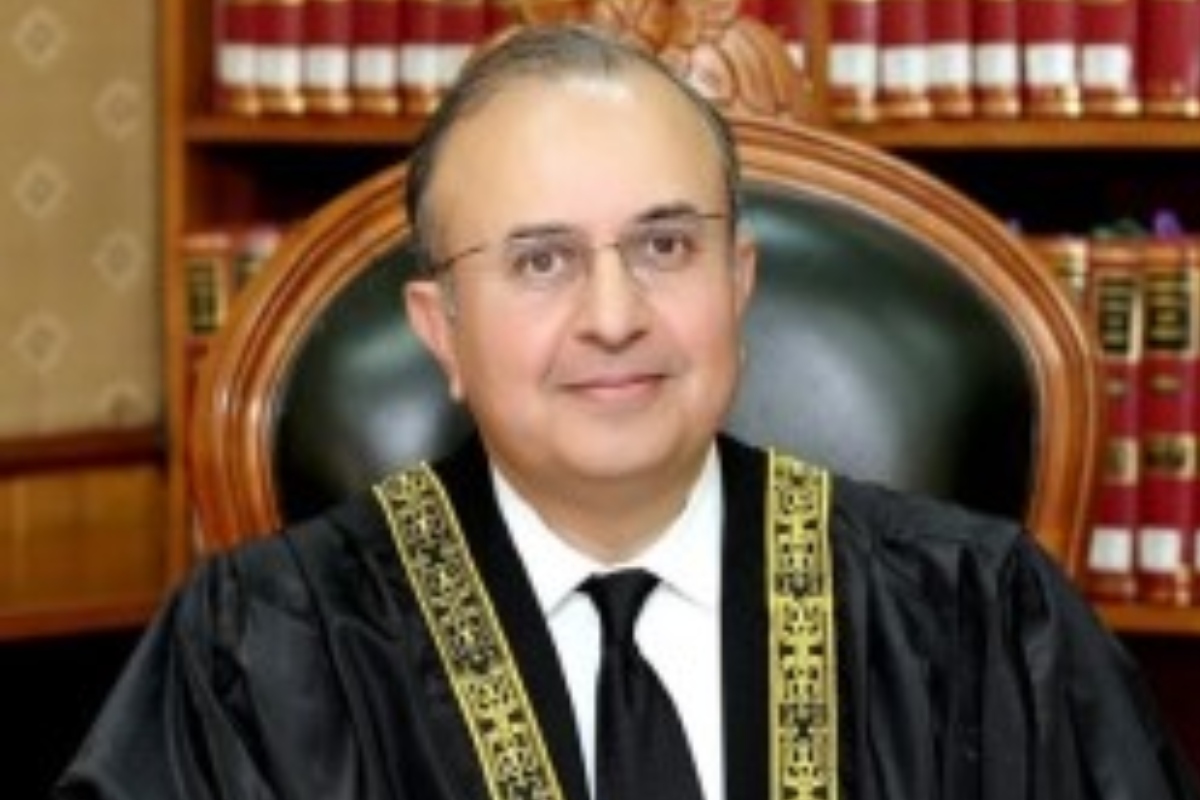Supreme Court judge Justice Mansoor Ali Shah asserted that members of the armed forces and judges can be held accountable under accountability laws.
He expressed this view in a 27-page dissenting note regarding the NAB (National Accountability Bureau) amendments verdict.
The verdict, issued by a bench led by former Chief Justice Umar Ata Bandial, nullified certain amendments made to the National Accountability Ordinance (NAO), 1999 during the PDM-led government.
During the case hearings, which were initiated following the amendments and filed by former Prime Minister Imran Khan, a question arose about whether judges and members of the armed forces are exempt from NAB laws.
Justice Shah firmly rejected the notion that these groups are exempt, emphasizing that they are equally liable under the NAB Ordinance, just like any other public servant in Pakistan.
He stressed the importance of courts adhering to the law and the Constitution of Pakistan, stating that no state organ should claim superiority over another under the principle of the “trichotomy of power.”
Justice Shah emphasized that courts should focus on upholding the Constitution and the law, regardless of popular sentiment, as they are not reliant on winning public support like political parties.
He further clarified that all branches of the state have distinct functions, and each pillar of the state operates independently in its designated sphere of work.
The legislature legislates laws, the executive executes laws, and the judiciary interprets laws, with none having superiority over the others or the authority to encroach upon the functions of the others, said Justice Mansoor.
Regarding the petition filed by Imran Khan against the amendments, Justice Shah noted that the lawyer representing the petitioner failed to demonstrate how the amendments impacted fundamental rights.
He found the petition meritless and dismissed it, stating that the challenged amendments pertained to procedural matters and the legislature’s policy domain.
















